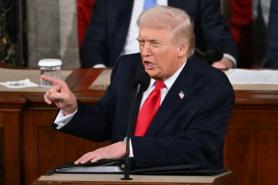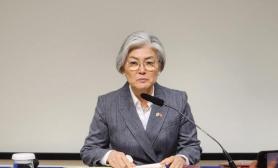![President Lee Jae-myung and President Donald Trump during a summit [Photo=Yonhap]](https://image.ajunews.com/content/image/2025/09/23/20250923154735732820.jpg)
SEOUL, September 24 (AJP) - South Korea’s negotiations with the Trump administration over a $350 billion investment package remain unresolved, casting uncertainty over the country’s trade relationship with Washington and fueling worries about foreign exchange stability.
The deal, first outlined in July, envisioned lowering mutual tariffs from 25 percent to 15 percent, with Seoul channeling $350 billion into U.S. projects — including $150 billion for a shipbuilding fund.
But talks have stalled over investment terms, leaving South Korea facing the possibility of high tariffs on its exports if no agreement is reached.
President Lee Jae Myung, who met with American lawmakers on Sept. 22, acknowledged the fragility of South Korea’s financial markets in the absence of a deal. He warned that committing such an enormous sum without a currency swap arrangement with the United States could trigger turmoil comparable to the 1997 Asian financial crisis.
“The outflow of $350 billion would severely impact South Korea’s economy,” Lee said, adding that a currency swap was essential to guard against shocks.
The pledge, still under negotiation, would surpass the total annual foreign direct investment the United States received in both 2023 and 2024, according to the Commerce Department. Funding it poses steep challenges for Seoul.
For now, President Lee has called for “commercial rationality” in any final arrangement. But with negotiations dragging on, Seoul must weigh the costs of protecting its export industries against the potential financial strain of an unprecedented investment abroad.
Drawing on foreign reserves could weaken the Korean currency and erode investor confidence, while issuing large volumes of bonds risks higher interest rates and slower growth.
Economists have sounded alarms.
Professor Kim Sang-bong of Hansung University said tapping reserves could push the exchange rate to 2,000 won per dollar from the current 1,350 won range, while extensive bond issuance could drive up borrowing costs across the economy.
By contrast, Japan recently committed $550 billion in cash to the United States over three years, a move cushioned by Tokyo’s unlimited currency swap line with the Federal Reserve. Seoul, lacking such a safeguard, faces more acute risks.
Some South Korean experts suggest accepting the higher tariff burden might be more manageable than financing the vast outflow. Others propose building stabilization funds or expanding swap networks to protect against capital flight.
* This article, published by Aju Business Daily, was translated by AI and edited by AJP.
Copyright ⓒ Aju Press All rights reserved.




